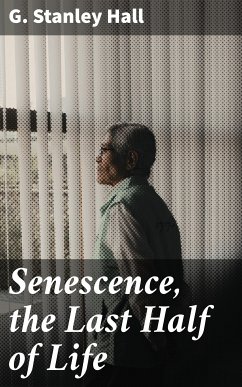In "Senescence, the Last Half of Life," G. Stanley Hall explores the intricacies of aging, examining both the physiological and psychological transformations that accompany the later stages of life. Hall employs a reflective and analytical literary style, intertwining empirical research with anecdotal evidence to illuminate the nuanced experiences of individuals entering their twilight years. As the first president of the American Psychological Association and a pioneer in developmental psychology, Hall situates his work within the broader context of early 20th-century scientific thought, bridging the gap between philosophy and psychology in his quest to understand the complexities of human experience as it evolves with age. G. Stanley Hall'Äôs extensive background in psychology and education heavily informs this work. His interest in adolescence and human development led him to turn his gaze towards senescence, as he sought to provide a comprehensive framework for understanding aging. Hall'Äôs rich academic lineage, combined with his role as a public intellectual, positioned him uniquely to challenge societal attitudes towards aging and promote a more nuanced consideration of the elderly'Äôs contributions to society. "Senescence, the Last Half of Life" is an essential read for anyone interested in gerontology, psychology, or the human condition. Hall's insights remain resonant, inviting readers to reflect on the value of the later stages of life and encouraging a compassionate, informed perspective on aging. This seminal work is not only an academic endeavor but also a heartfelt appeal for understanding the dignity inherent in every phase of life.
Dieser Download kann aus rechtlichen Gründen nur mit Rechnungsadresse in A, B, BG, CY, CZ, D, DK, EW, E, FIN, F, GR, H, IRL, I, LT, L, LR, M, NL, PL, P, R, S, SLO, SK ausgeliefert werden.









